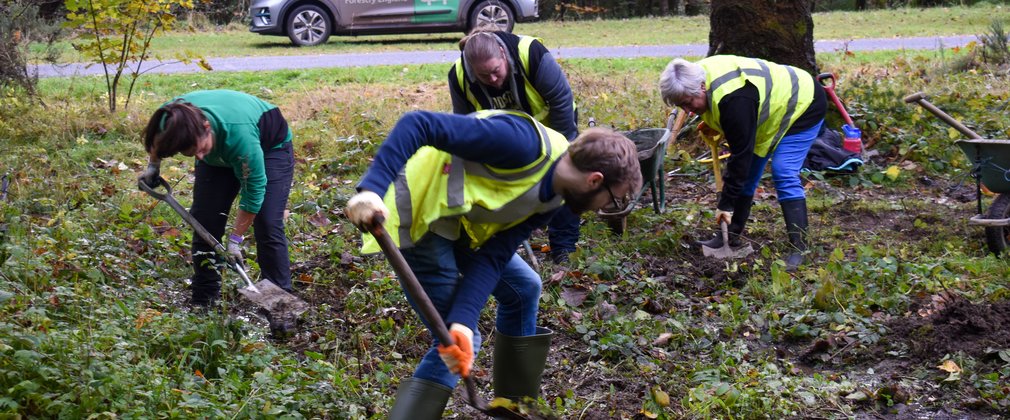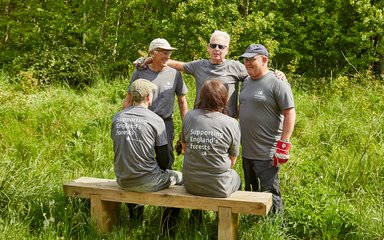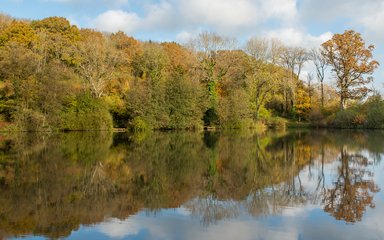
Our volunteer supervisors plan and oversee the work carried out by our volunteers in their forest or beat. There are over 20,000 volunteers across England helping to care for the nation’s forests.
The volunteers take part in a wide range of activities such as visitor welcome and supporting large events, ecology surveys and helping with practical conservation projects, heritage projects and providing administrative support.
What it takes
A volunteer supervisor’s role is often part of another job role, such as a community ranger, forest crafts person or ecologist, occasionally they are stand alone roles supporting a team. It involves working with diverse team of volunteers at our forest sites and operating across many different work areas helping to care for the nation’s forests. This role includes:
- delivering and directing a high quality volunteering experience within a geographical area inline with Forestry England’s policies and procedures.
- planning, implementing and delivering volunteer work parties or roles.
- co-ordinating training for the volunteers so that they can complete tasks in a safe manner.
- writing risk assessments, demonstrating safe working practise, leading safety talks and ensuring volunteers follow heath and safety requirements.
- working alongside a range of departments, work colleagues, stakeholders and partners to ensure volunteer support makes a valued positive impact to the forest.
- providing a point of contact and communications to volunteers, partners, colleagues and stakeholders.
- using Forestry England’s information management system to protect and update volunteer data and report volunteer hours and achievements.
- giving people an insight into the value of the nation’s forests and what Forestry England do to care for them.
Skills and qualifications
We recommend that you gain experience and skills where you can. Completing a relevant college course or apprenticeship and achieving appropriate certificates will provide you with a strong foundation. Volunteering and short term seasonal roles are great for gaining practical knowledge, experience and skills.
This role requires:
- strong communications, team management and organisational skills.
- a knowledge of or practical experience of risk assessments is essential.
- experience of handing personal and confidential information sensitively is essential.
- experience in community involvement programmes, developing stakeholders partnerships and delivering volunteer programs is desirable.
- having practical experience in leading groups and carrying out conservation tasks is desirable.
- some evening and weekend working.
You can get into this job through:
- a college course.
- an apprenticeship.
- apply to Forestry England’s Shadow Volunteer and trainee programmes.
College
You could take a college course to learn some of the skills needed in this job. Course may include:
- countryside management.
- teamwork and personal development in the community.
- youth work.
You will need:
- four or five GCSEs at grades 9 to 4 (A* to C) including maths and English.
University
You could do a foundation degree or degree in a subject like:
- environmental conservation.
- countryside management.
- youth work.
- community development.
- social science.
You'll usually need:
- 2 to 3 A levels, or equivalent, for a degree.
Salary
Starting from £26,000.
Typical hours
37 (or part time), including weekend and evening work.
Forestry England offers flexible working patterns where appropriate and lots of other great benefits to support a healthy work/life balance.
How you can grow with us
Your career could progress into:
- head of community and volunteering.
- specialist roles like district volunteer co-ordinator or delivering our feel good in the forest or active forests programmes.
Applying to work at Forestry England
If a volunteer supervisor's role sounds exciting to you, check out Civil Service jobs for all our current vacancies.
Our frequently asked questions will help in your application.




